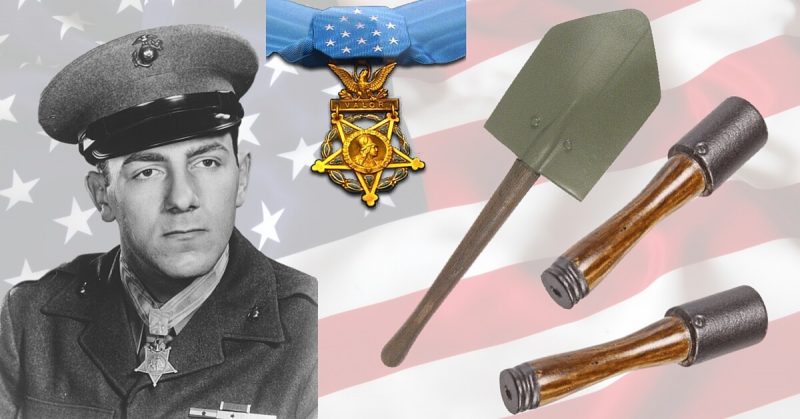Hector Cafferata passed away on April 12 at the age of 86. Cafferata received a Congressional Medal of Honor, the nation’s highest decoration for wartime valor, for his lone battle against the enemy in the Korean War, fought in ankle-deep snow in his socks.
Hector Albert Cafferata, Jr., was born on November 4, 1929, in New York City. His family later moved to Booton, NJ, where his father ran a paper mill.
Cafferata was a six-foot, two-inch semi-pro football player when he joined the Marine Corps Reserve in 1948. He was activated for the Korean War in 1950. He was assigned to the 1st Marine Division as a private. His unit was responsible for protecting an escape route in a mountainous region near the Chosin Reservoir in what is now North Korea.
Due to the frozen ground, the Marines weren’t able to dig their usual foxholes for protection. They cut tree branches to make shelters and then went to sleep in their sleeping bags.
Around 1:30 in the morning on November 28, 1950, Cafferata was awakened by the sounds of Chinese soldiers attacking their position. Most of the members of his squad were killed or severely wounded in the attack. Cafferata gathered weapons from his fallen comrades and grabbed a fellow Marine, Kenneth Benson, who had been temporarily blinded when a grenade had exploded near his face and shattered his glasses.
“I told Benson, ‘Hang on to my foot. We’re going to crawl,’” Mr. Cafferata said in a 2001 interview with Florida’s Charlotte Sun newspaper. “We crawled up to a wash, where rainwater cut a shallow trench into the side of the hill. I told him, ‘This is where we’re going to stay.’”
Cafferata was raised in rural New Jersey, where he learned to be a crack shot and had become accustomed to rugged conditions.
Cafferata tossed grenades at enemy troops while the injured Benson loaded his rifle for him, according to a 2005 account in the Marine Corps Times. As soon as his rifle was ready he fired off all eight shots, killing eight enemy soldiers.
While Benson reloaded for him, Cafferata became a one-man force, holding off the enemy for five hours. He recalled firing his M1 rifle so often that “that thing turned to charcoal. I had to put snow on it to cool it off.”
Cafferata spent the night under constant fire from rifles, grenades, and mortars. He would grab the live grenades and throw them back at the Chinese troops or batted them back with his entrenching tool.
“For the rest of the night I was batting hand grenades away with my entrenching tool while firing my rifle at them,” he said in 2001. “I must have whacked a dozen grenades that night with my tool. And you know what? I was the world’s worst baseball player.”
An exploding grenade severed part of a finger and embedded shrapnel in his right arm. He continued fighting through the night as enemy soldiers came up as close as 15 feet from him.
At daybreak, Cafferata was seriously wounded by a sniper. Other Marines managed to get to him to rescue him. When they got him to the first-aid tent, the medics noticed that his feet were frostbitten. He has fought the entire night without boots or a coat in the extreme cold
The Medal of Honor citation for Cafferata describes him as “stouthearted and indomitable” and officially credited him with killing 15 enemy soldiers, “wounding many more and forcing the others to withdraw.”
According to the book Medal of Honor: Portraits of Valor Beyond the Call of Duty by Peter Collier, officers from Cafferata’s unit “counted approximately one hundred Chinese dead around the ditch where he had fought that night but had decided not to put the figure into their report because they thought that no one would believe it.”
Cafferata spent 18 months in military hospitals, recovering from his wounds. He was presented with the Medal of Honor by President Harry S Truman at a ceremony in the White House in November 1952.
After the war, Cafferata returned to New Jersey. He sold hunting and fishing equipment and worked for the state fish and wildlife service. For a time, he owned a bar in Alpha, NJ. He later settled in Venice, FL, in the late 1990’s. There is an elementary school in Cape Coral, FL, named in his honor.
Cafferata died from complications due to an infection, according to his daughter, Deborah Cafferata-ReFalo.
He is survived by his wife of more than 50 years (the former Doris Giblock of Venice); four children – Lynn D. Cafferata Coovert and Deborah Cafferata-ReFalo, both of Charlotte, NC, Dale W. Cafferata of Pinellas Park, FL, and Heather A. Cafferata of Budd Lake, NJ; a brother; six grandchildren; and three great-grandchildren.
While Cafferata occasionally attended Medal of Honor events, he mostly kept quiet about his wartime experiences.
“I did my duty,” he told the Sarasota Herald Tribune in 2014. “I protected my fellow Marines. They protected me. And I’m prouder of that than the fact that the government decided to give me the Medal of Honor.”
